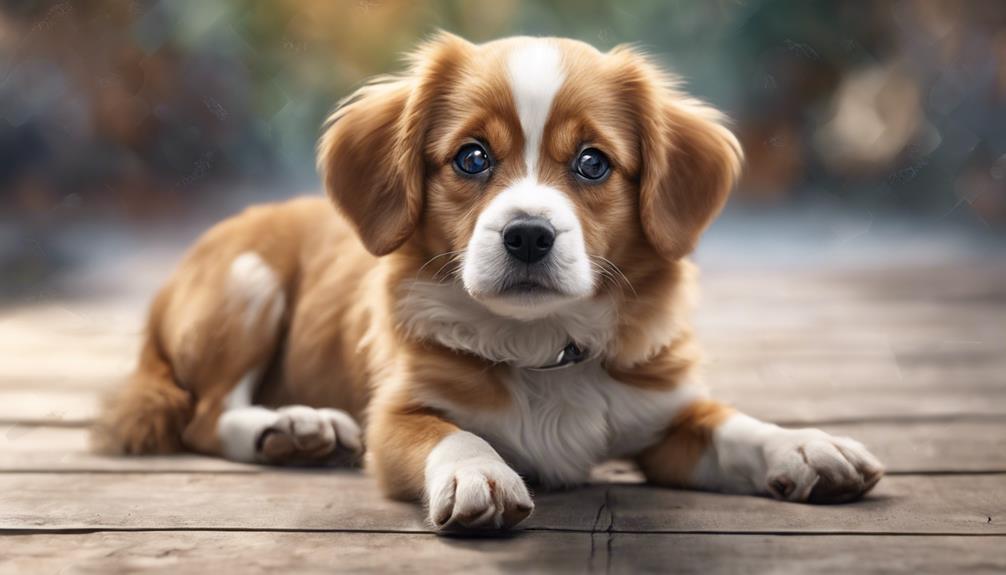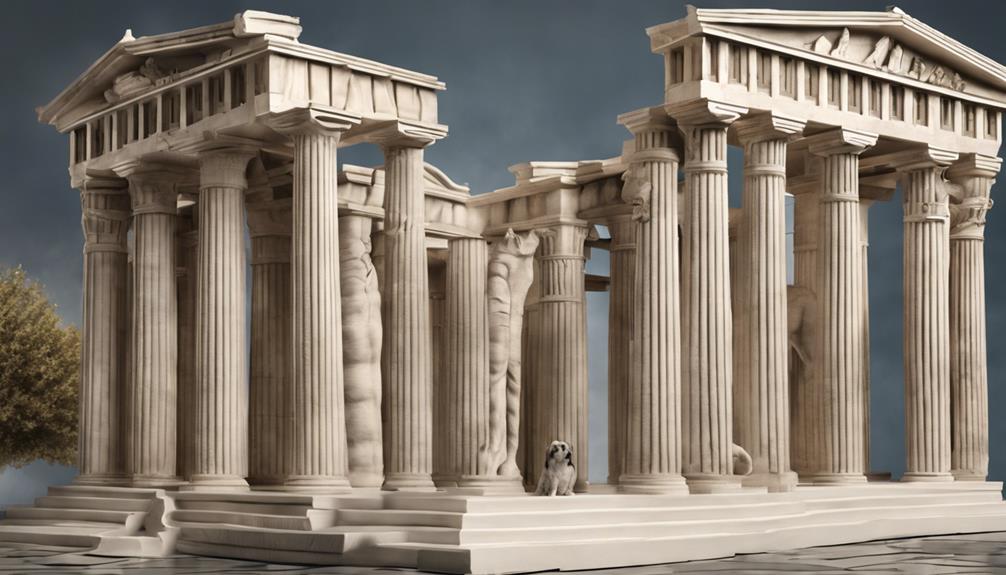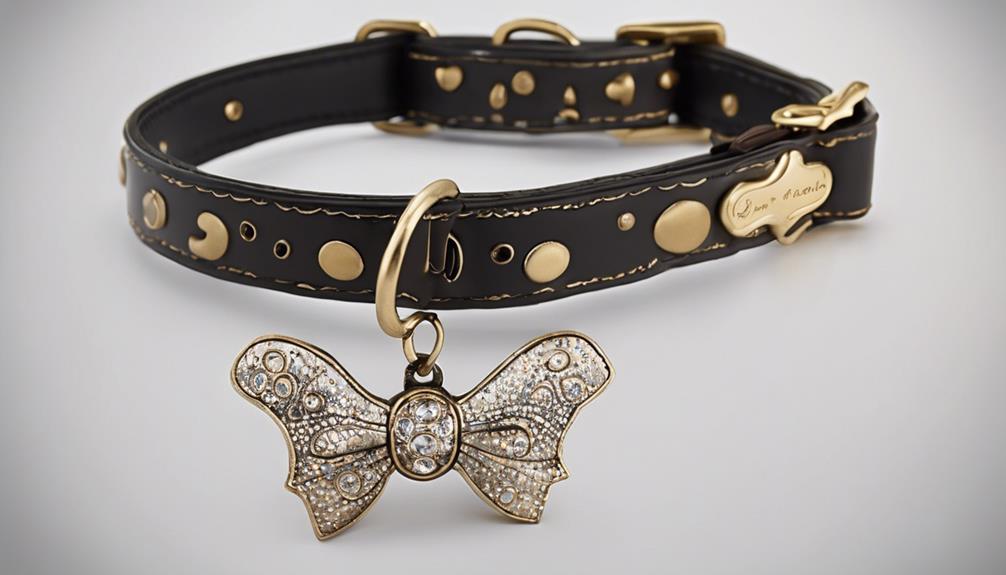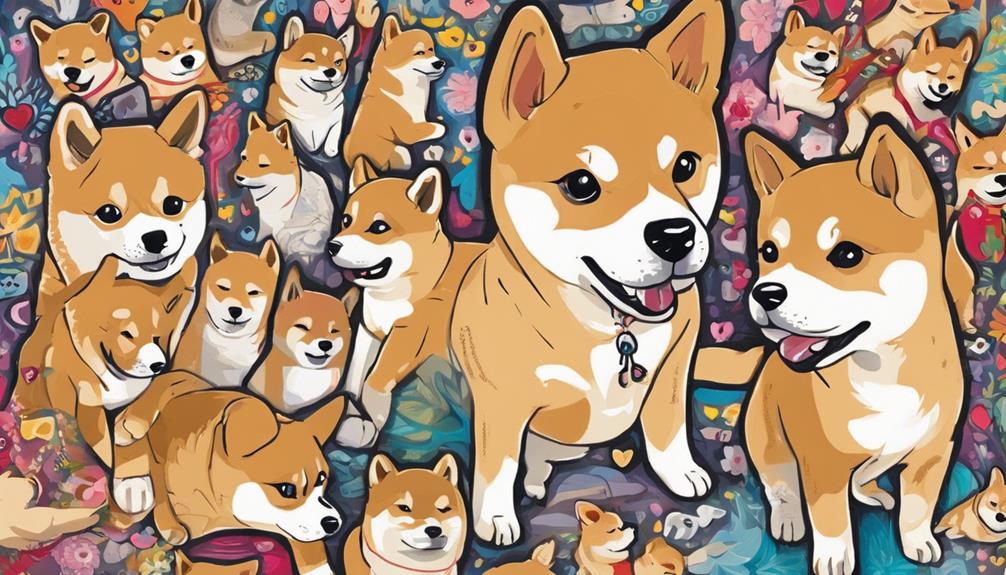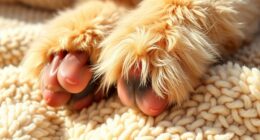Dog hiccups stem from triggers like fast eating, stress, or excitement. Stress can lead to spasms, while excitement may trigger hiccups. Dietary factors like fast eating or rich foods play a role. Health issues such as gastrointestinal problems can also cause hiccups. Seizures in dogs need prompt vet care for diagnosis and treatment. Recording seizure details aids the vet in pinpointing causes. Early intervention is essential for managing seizures effectively. Understanding root causes like epilepsy or brain tumors is pivotal. Vet care enhances the dog's quality of life.
Key Takeaways
- Common triggers for dog hiccups include eating too quickly, stress, and overexertion.
- Stress, excitement, and environmental changes can lead to hiccups in dogs.
- Seizures in dogs can stem from epilepsy, toxins, brain tumors, or metabolic issues.
- Veterinary care is crucial for diagnosing the root causes of seizures in dogs.
- Seeking prompt veterinary care for uncontrollable muscle spasms is essential for dogs experiencing seizures.
Common Triggers for Dog Hiccups
Identifying common triggers for dog hiccups is essential in managing and reducing their occurrence. Hiccups in dogs can be caused by various factors, including eating or drinking too quickly. When our furry friends gulp down their food or water hastily, it can lead to hiccups. To prevent this, we should encourage slower eating habits by using specialized bowls or offering smaller portions at a time.
Additionally, hiccups can also be related to stress or excitement. Just like us, dogs can get anxious or worked up, which may result in hiccups. Ensuring a calm and peaceful environment for our canine companions can help reduce stress-related hiccups.
Furthermore, overexertion from activities like excessive barking or intense play sessions can trigger hiccups in some dogs. Monitoring their activity levels and ensuring they've enough rest can help prevent hiccups caused by overexertion. By understanding these common triggers, we can better manage and minimize the occurrence of hiccups in our beloved pets.
Relationship Between Stress and Hiccups
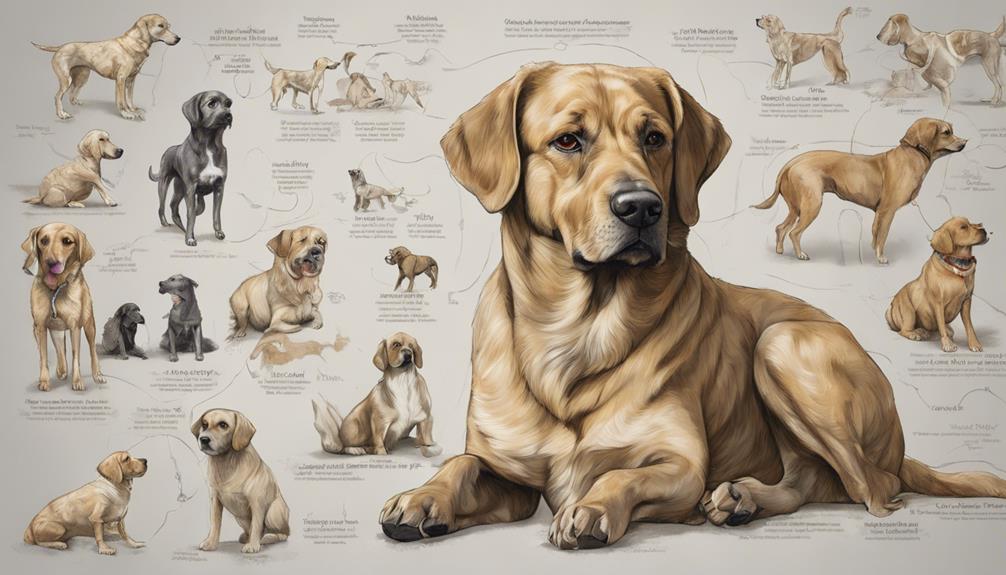
Stress can set off hiccups in dogs by causing spasms in their diaphragm.
When dogs are anxious, the intensity of hiccups might increase due to heightened excitability and nervousness.
To help diminish hiccups, creating a calm environment and employing techniques like massage or soothing music to alleviate stress are crucial.
Stress Triggers Hiccups
When dogs experience stress, their nervous system and diaphragm function can be impacted, potentially leading to hiccups. Environmental changes, separation anxiety, and loud noises are common stressors that can trigger hiccups in dogs.
Signs of stress-induced hiccups may include panting, pacing, or restlessness. To help reduce hiccups in dogs, it's vital to manage stress through calming techniques, maintain a routine, and provide a comfortable environment.
Anxiety Amplifies Hiccups
Addressing anxiety in dogs plays an important role in understanding how stress can amplify hiccups in our furry companions.
- Anxiety can trigger stress-related hiccups in dogs, causing them to hiccup more frequently.
- Loud noises, changes in routine, or unfamiliar environments can worsen stress levels in dogs, exacerbating hiccups.
- Chronic stress may lead to persistent hiccups, indicating the necessity for behavioral interventions or veterinary guidance.
Understanding the relationship between anxiety, stress, and hiccups is vital in helping our dogs stay healthy and happy. By identifying stressors and implementing strategies to reduce anxiety, we can effectively manage and alleviate stress-related hiccups in our canine friends.
Calmness Reduces Hiccups
Maintaining a peaceful environment and minimizing stressors can effectively reduce the occurrence of hiccups in dogs. Dogs, like humans, can experience stress and anxiety, which may lead to hiccups. By creating a serene environment for your pet and addressing any fear or anxiety triggers, you can help lower their stress levels and decrease the likelihood of hiccups.
Positive reinforcement training techniques can also assist in managing their anxiety and promoting relaxation. Remember, a vital atmosphere and gentle interactions play an important role in your pet's well-being. Prioritizing your dog's comfort and mental health through a calm and stress-free environment is essential for overall pet care and hiccups prevention.
Dietary Factors Influencing Hiccups
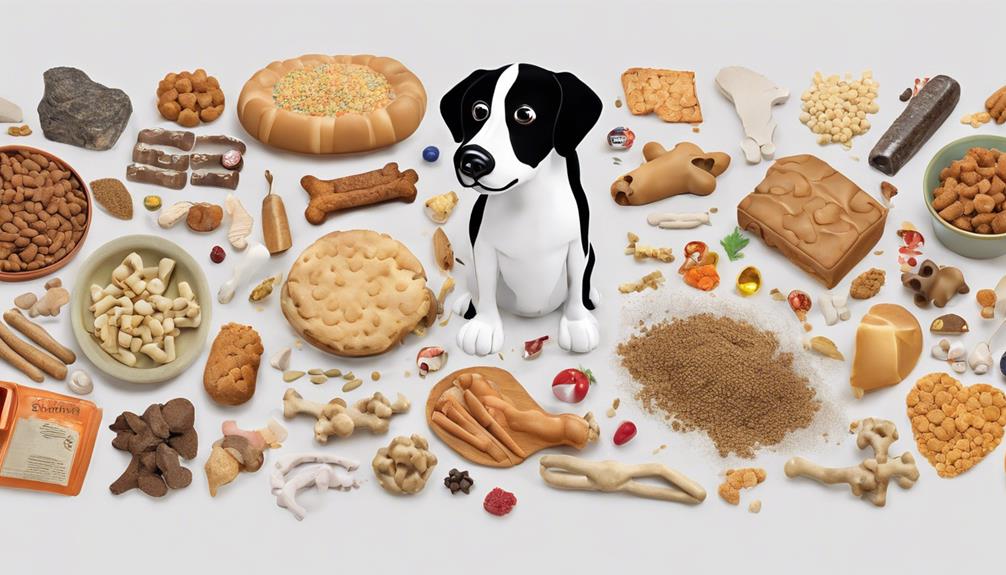
Consuming food too quickly or indulging in rich, fatty meals can be contributing factors to hiccups in dogs. When it comes to your furry friend's feeding time, here are some key dietary factors influencing hiccups:
- Eating Habits: Dogs that tend to eat too fast or gulp air while eating are more prone to hiccups. Encouraging slower eating habits can help prevent hiccups related to this cause.
- Food Choices: Rich or fatty foods can sometimes trigger hiccups in certain dogs. Opting for a balanced and easily digestible diet can reduce the likelihood of hiccups occurring.
- Timing of Meals: Feeding dogs immediately before or after vigorous activity can stress their digestive system, leading to hiccups. Ensuring a calm environment during feeding times and avoiding intense activities around mealtime can help prevent hiccups associated with stress on the digestive system.
Link Between Excitement and Hiccups
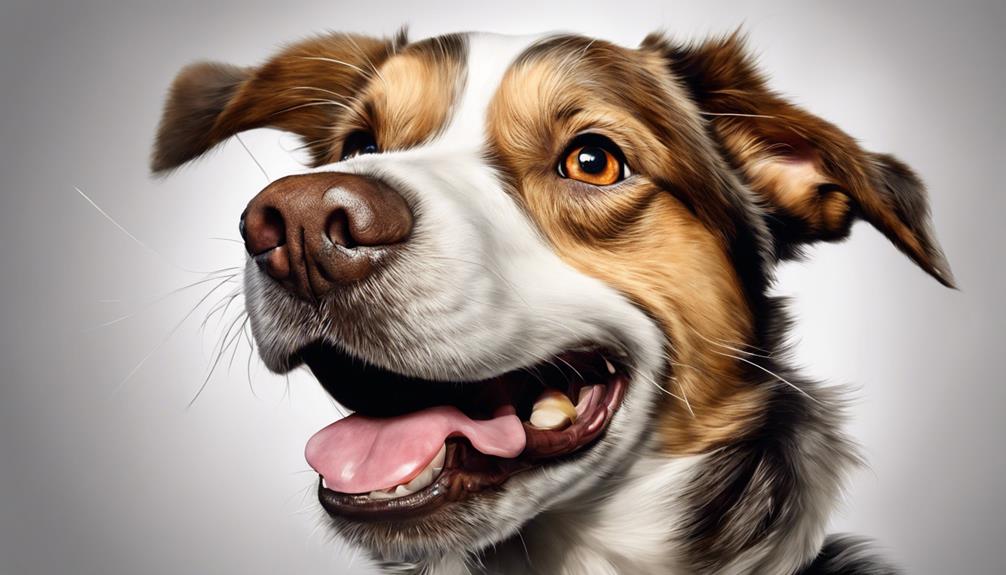
How does excitement in dogs contribute to the occurrence of hiccups?
Excitement can trigger hiccups in dogs, especially in puppies who are more prone to these excitement-induced hiccups. When dogs get excited, their heart rate and breathing patterns increase suddenly, which can lead to hiccups.
You may notice your dog displaying playful behavior or being more active when experiencing excitement-induced hiccups.
The good news is that these hiccups are typically short-lived and tend to go away on their own as the excitement fades.
To help reduce the occurrence of hiccups related to excitement, it's crucial to manage your dog's excitement levels. This can be achieved through training your dog to remain calm in exciting situations and using calming techniques when needed.
Potential Health Issues Causing Hiccups
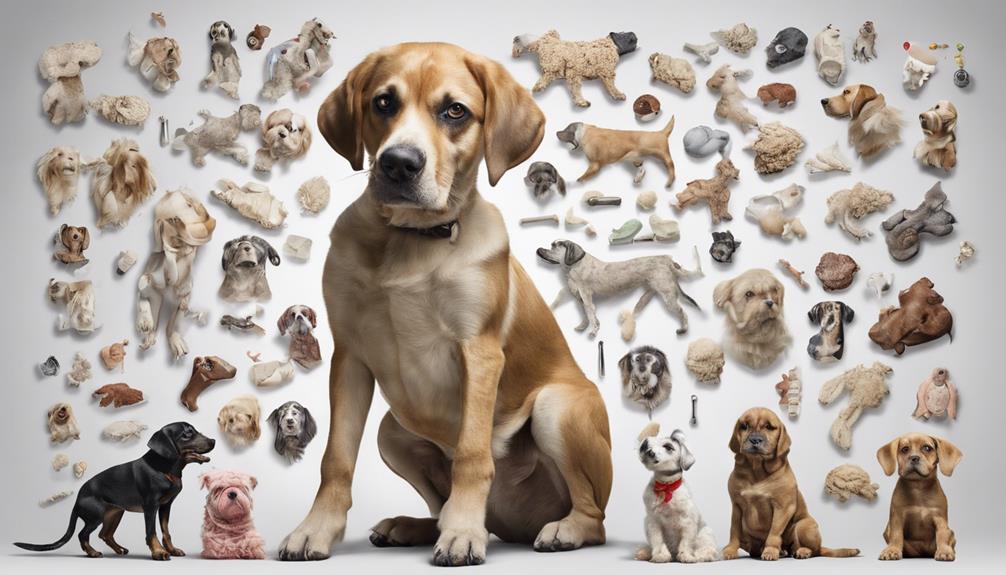
Common health issues that can cause hiccups in dogs include gastrointestinal problems, nerve damage, tumors, and synchronous diaphragmatic flutter. When it comes to puppies, their developing gastrointestinal systems may be more prone to hiccups due to dietary changes or indigestion.
- Gastrointestinal issues like gastritis or gastroesophageal reflux can lead to hiccups in dogs by causing irritation or inflammation in the digestive tract.
- Nerve damage, whether from trauma or underlying conditions, can disrupt the signals controlling the diaphragm, resulting in hiccups.
- Synchronous diaphragmatic flutter, also known as a diaphragm spasm, can cause repetitive hiccups due to sudden contractions of the diaphragm muscle.
Understanding these potential health issues can help pet owners recognize when hiccups in their dogs may signal the need for veterinary attention. If hiccups are persistent, accompanied by other concerning symptoms, or if there are worries about underlying conditions, seeking professional veterinary advice is essential to guarantee the well-being of furry companions.
Understanding Seizures in Dogs
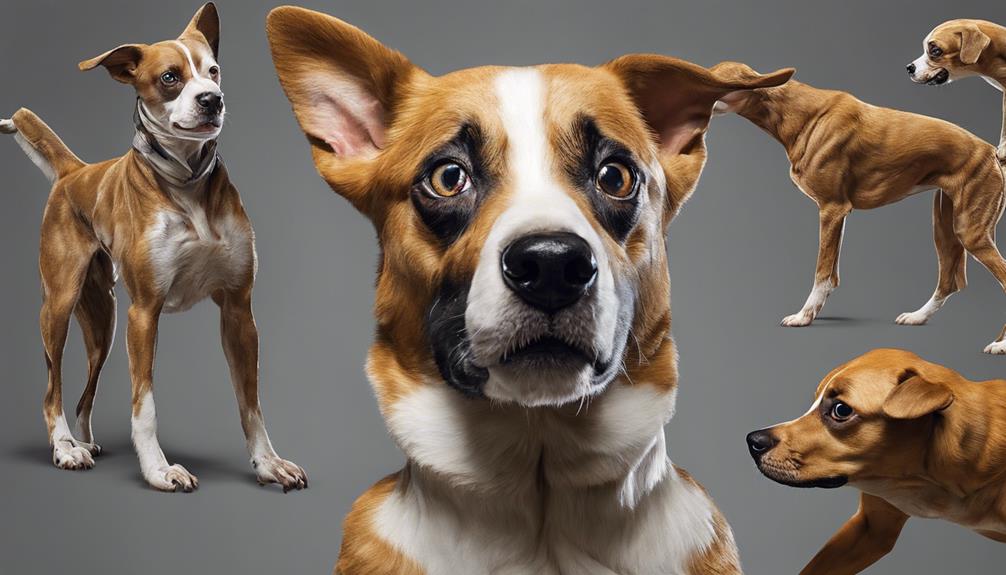
Seizures in dogs are sudden episodes of uncontrolled electrical activity in the brain. These uncontrolled bursts can be triggered by various factors such as epilepsy, brain tumors, toxins, and metabolic issues. When a dog experiences a seizure, it may exhibit signs like convulsions, muscle twitching, drooling, or loss of consciousness.
Diagnosing seizures in dogs involves thorough physical exams, blood tests, imaging, and neurological evaluations. By identifying the underlying cause of the seizures, veterinarians can recommend appropriate treatment options. Some treatment methods may include medication, dietary adjustments, and managing any related health conditions.
If your dog experiences seizures, it's essential to consult with a veterinarian for proper evaluation and guidance. Understanding the possible causes of seizures can help in providing the best care for your furry companion.
Identifying Symptoms of Seizures
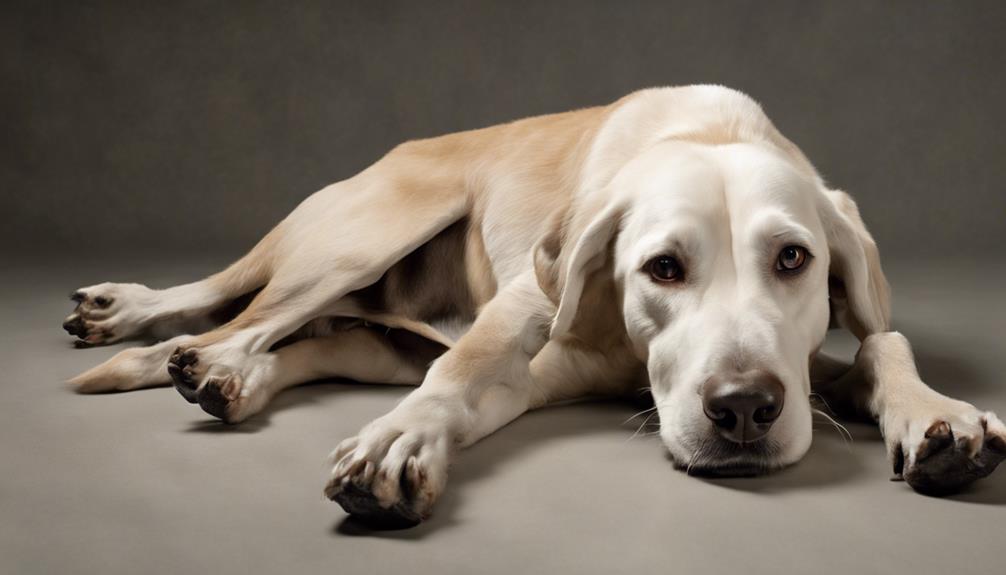
During a seizure episode in dogs, observable symptoms can range from twitching and convulsions to loss of consciousness.
- Symptoms: Look for signs like drooling, paddling of limbs, and vocalizations during a seizure. These visible cues can help in identifying a seizure episode in your furry friend.
- Post-Seizure Phase: After a seizure, dogs may experience disorientation, pacing, or even temporary blindness. It's important to monitor your pet during this phase to guarantee their safety and comfort.
- Diagnosis and Treatment: Note down details such as seizure duration, frequency, and any possible triggering events. This information is essential for the vet to accurately diagnose the cause of the seizures and recommend an appropriate treatment plan. Remember, early detection and proper management are key in helping your dog lead a happy and healthy life despite experiencing seizures.
Seeking Veterinary Care for Seizures
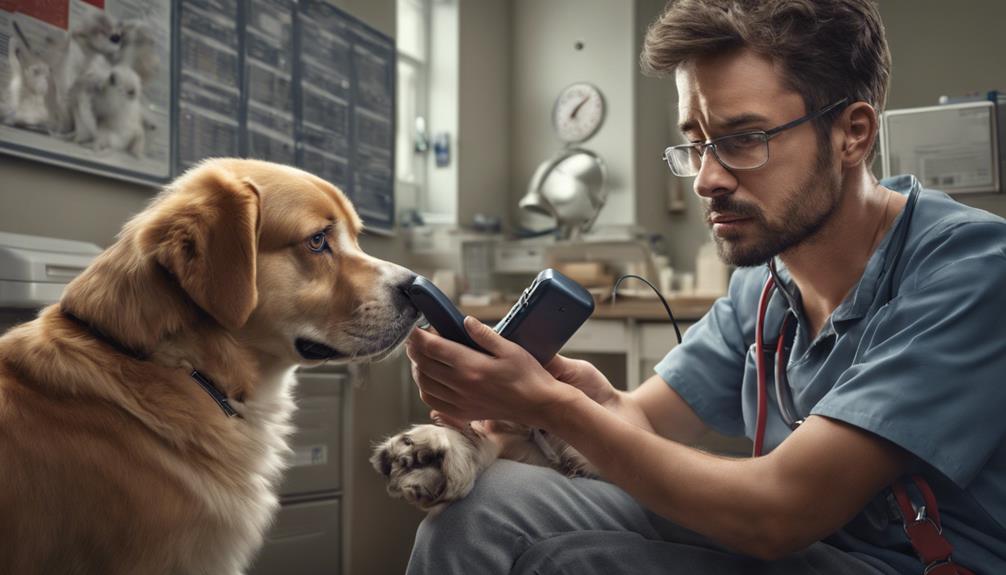
When faced with concerning symptoms such as uncontrollable muscle spasms or abnormal behavior in their dog, pet owners should promptly seek veterinary care to diagnose the underlying cause of these seizures.
Veterinary care is essential in determining the reason behind the seizures and establishing the most effective treatment plan. Seizures can stem from various factors like epilepsy, toxins, brain tumors, or metabolic issues.
Diagnostic procedures such as blood work, imaging scans, and neurological exams are vital for veterinarians to pinpoint the root cause of the seizures accurately.
Early intervention and proper management of seizures play a significant role in enhancing the quality of life for dogs and reducing the chances of complications.
Frequently Asked Questions
Why Does My Dog Have Hiccups Like Spasms?
We get hiccups-like spasms when our diaphragm spasms involuntarily, causing sudden inhales and sometimes a hic sound. For dogs, these spasms can be triggered by various things like excitement, stress, overeating, or nerve irritation.
While hiccups are usually important, frequent or persistent spasms might signal underlying health problems. It's essential to differentiate between hiccups and more serious issues like seizures, so consulting a vet if the spasms persist or worsen is recommended.
Can Dog Seizures Look Like Hiccups?
Yes, dog seizures can sometimes resemble hiccups due to rhythmic muscle contractions and spasms.
It's important to distinguish between the two, as seizures involve abnormal brain activity, while hiccups are involuntary diaphragm spasms.
Seizures may manifest with altered consciousness or convulsions, unlike hiccups that typically produce a sound.
If in doubt about symptoms, seek guidance from a veterinarian to guarantee proper diagnosis and care for potential seizure activity in dogs.
Should I Be Worried if My Dog Is Hiccuping?
If your dog is hiccuping, it's usually nothing to worry about, especially in puppies. Factors like eating too fast or excitement can cause hiccups.
However, if the hiccups are frequent or accompanied by other symptoms, it's best to consult a vet.
Differentiating between hiccups and more serious conditions, like seizures, is important. Seek veterinary attention if your dog's hiccups persist or if they display severe symptoms.
Is My Dog Having Seizures or Muscle Spasms?
If your dog is experiencing sudden movements and body jerks, it's vital to differentiate between muscle spasms and seizures.
Seizures involve abnormal brain activity, leading to convulsions and loss of consciousness. Muscle spasms are involuntary muscle contractions causing twitching or shaking.
Observing the duration, frequency, and accompanying symptoms can help determine the issue. Seeking veterinary advice is essential for proper care and treatment.
Are Pointy-Eared Dog Breeds More Prone to Hiccups or Seizures?
Some dog owners believe that pointy-eared breeds are more prone to hiccups or seizures, but there is no scientific evidence to support this claim. However, the top 3 pointyeared breeds, including the German Shepherd, Siberian Husky, and Australian Cattle Dog, are all known for their intelligence and agility.
Conclusion
To sum up, while hiccups in dogs are often harmless and can be triggered by various factors such as stress, diet, and excitement, seizures are a more serious condition that require immediate veterinary attention.
It's important for pet owners to be vigilant and observant of their dog's behavior to identify any potential health issues.
Remember, a hiccup may just be a passing annoyance, but a seizure warrants prompt medical intervention to guarantee your furry friend's well-being.
